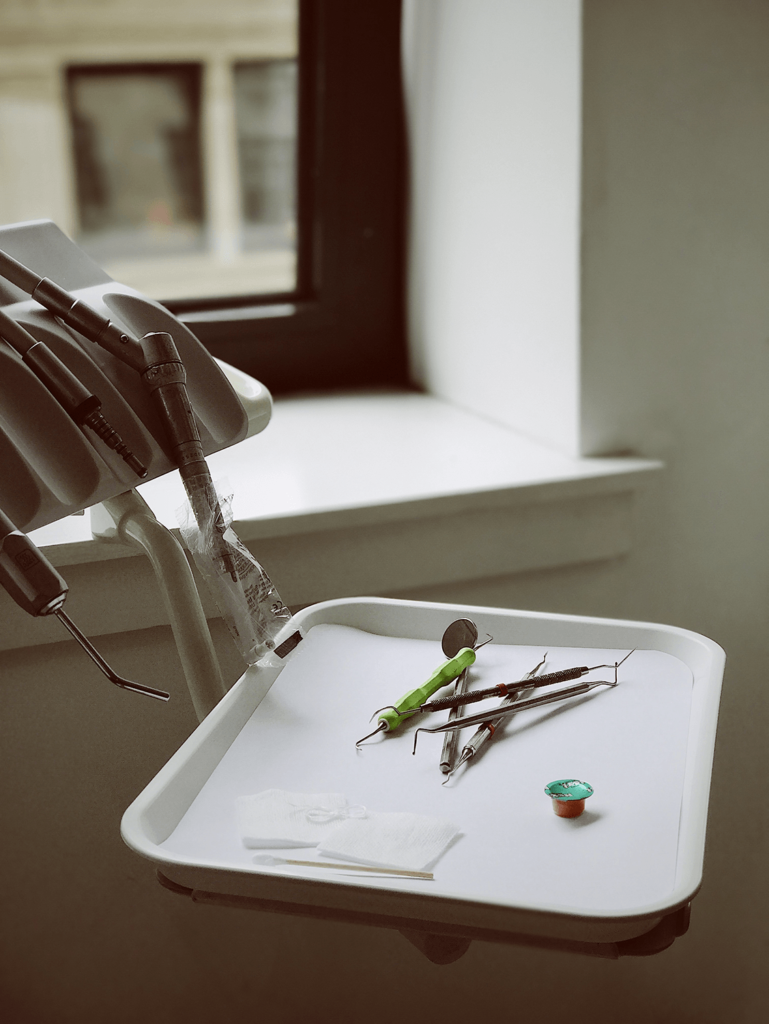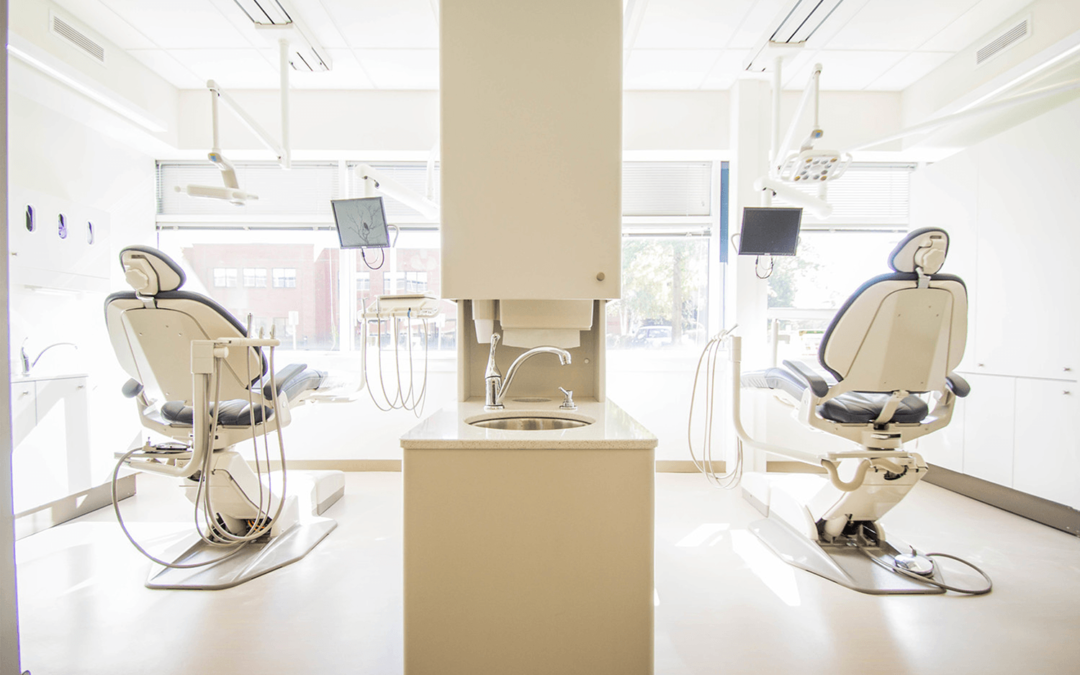What is Sedation Dentistry?
Sedation dentistry, in short, is completing dental procedures while the patient is under an altered state of consciousness. While most people tend to have a general idea of what sedation dentistry is, there are a lot of misconceptions floating around. Seen as mysterious and sometimes dangerous, sedation in dental procedures is actually quite the opposite; most of the time, sedation will improve your experience tenfold.
In this blog, we’re going to dive deeper into those negative myths and misconceptions and give you the facts about sedation straight from the source.
“Sedation knocks you out.”
There are many different types of sedation, and not all of them include totally being put to sleep. Most forms of sedation in dentistry are actually not deep or total sedation, but simply an altered or more relaxed state.
What Are The Different Types of Sedation?
Specialists in every field of medicine use different levels of sedation to perform invasive and non-invasive procedures.
In addition to all forms of sedation, dentists will usually use local anesthetics, or numbing medications in your mouth around your gums and teeth. Additionally, most types of sedation are reversible. Reversibility means that your dentist can give you medication to undo the effects of sedation like drowsiness or loopiness.
These are the types of sedation dentistry according to Web MD.
Inhaled Minimum Sedation/Nitrous Oxide
Nitrous oxide or “laughing gas” is one of the lightest forms of sedation. The gas simply helps you to mellow out during your procedure. Your dentist can adjust the levels of gas that you inhale based on your in-the-moment need. The gas wears off quickly, so you’ll be connected to an air tube that will be lightly pumping nitrous oxide into your nose. The tube isn’t heavy on your face, and doesn’t get in the dentist’s way during your treatment.
Laughing gas is extremely mild, so you may not have to rely on getting a ride to and from the dentist’s office. After waiting a certain amount of time after the end of your procedure, some people are able to drive home on their own. Dentists commonly use laughing gas for tooth-pulling or other mild procedures, but as with all medications, it varies per patient.
Oral Sedation
Oral sedation comes in many different types of levels which all stem from taking a pill. Patients will take a certain prescribed medication by mouth up to an hour before the procedure. These medications can give the effects of drowsiness or pleasant loopiness. They’re usually used to calm down patients with anxiety surrounding a procedure, to further numb the pain or pressure, or to simply make the procedure go faster.
Oral sedation wears off on its own, but it’s absolutely necessary to have someone accompanying you as you leave the dentist’s office. (Which may not be so bad after all; it’s just someone to buy you soft snacks after getting your wisdom teeth taken out!)

Moderate Sedation/IV Sedation
Moderate sedation is the quickest form of sedation, meaning that you feel the effects almost immediately after the IV is injected. It’s because the medicine is going directly into your bloodstream; your body doesn’t have to spend much time processing it.
Your dentist can also continually adjust the level of medicine you’re receiving as the procedure is going on. If you’re experiencing pain, they can increase the sedation. Or if you’re feeling more mellow, they can stop or reverse the sedation.
Deep Sedation
Deep sedation is the next level of dental sedation, where the patient tows the line between conscious and unconscious. Under deep sedation, you might fall asleep, but someone can easily wake you up with just a shake of the shoulders. Not all dentistries offer this form of sedation, so it’s always important to consult with your dentist first.
General Anesthesia
General anesthesia is the highest form of sedation, which literally puts you to sleep. While other forms of sedation play with consciousness, general anesthesia means that you will be completely unconscious. Only anesthesia specialists called anesthesiologists can administer this, so you can trust that you’re in good hands.
Not all dentistries have anesthesiologists. If you want to request general anesthesia for your procedure, talk to your dentist for a recommendation to another trusted dental care office.
Under anesthesia, you will absolutely need assistance leaving the dentist’s, as anesthesia takes a while to wear off. Depending on the way or amount the anesthesia your specialist administered, a specialist might give you reversal medication to wake you up. Either way, it’s a completely safe way to be sedated.
“Sedation is for people with anxiety.”
While sedation certainly does help people with anxiety or a fear of the dentist, there’s a cornucopia of reasons why a dentist would recommend sedation. In some instances, dentists recommend sedation to people with bad gag reflexes; it makes any procedure or even just a simple tooth cleaning much easier on both ends of the spectrum. Different forms of sedation are also frequently used with people with mental disabilities who have a hard time going to the dentist.
What Do Dentists Use Each Type of Sedation For?
Here’s the short answer: it depends. The type of sedation you use during your treatment is contingent on your level of pain tolerance, anxiety levels, and the type of procedure.
Take a cavity filling, for example. Some people don’t need to use any sedation at all, as the local numbing agent is enough for them to feel at ease. Others with lower pain tolerance and higher anxiety might request to use laughing gas or minimal sedation for a simple cavity filling.
Root canals, however, might need a deeper level of sedation for the average person. Depending on your pain tolerance, you might just want to use laughing gas, or you request that an anesthesiologist put you to sleep using deep sedation altogether.
Sedation is different for everyone, and there’s no one way of doing it.
You and your dentist will come to a consensus about which form of sedation is right for you, no matter the procedure. While there are some types of sedation that might pair better with your procedure, you’ll always have the final say. Your virginia beach dentist will ultimately prioritize your safety and comfort and use whatever sedation level you have agreed to.
It’s important to note that not all dentistries offer every level of sedation; practices like deep sedation require specialists that your dentistry might not employ. Still talk with your dentist so they can recommend you to a specialist that they know and trust.

“Anyone Can Undergo Sedation.”
As mentioned before, an honest conversation with your dentist will determine whether or not sedation dentistry is right for you; however, there are some candidates who cannot undergo sedation.
People who are pregnant cannot undergo sedation, along with other people who have conflicting medical conditions. Some people may be overly tolerant to certain types of sedation; giving them higher doses might be dangerous and not worth the risk. Certain procedures might also conflict with the type of procedure you’re receiving or any type of medication you take. There could also be a combination of small things that might add up to make sedation dangerous for you.
This is why it’s so important to talk to your dentist to ensure that you’re participating in the safest practice of sedation dentistry possible. A dental professional will always warn you if sedation is a bad option, and always make sure to listen to them.
“Sedation Is Expensive.”
Since there are a lot of moving parts that go into sedation dentistry, many people believe that it’s costly.
The reality is quite the contrary, actually! It might seem too good to be true, given that sedation offers luxury comfort during a dental procedure; however, the truth is that you’ll likely spend very little out-of-pocket. Most insurance will cover sedation for dental procedures, given how helpful and sometimes needed it is.
“Sedation Is Dangerous.”
While your state of consciousness is a careful thing to entrust to someone else, you can always feel sure that your dentistry has experienced professionals working with you at every turn. Anesthesiologists go through years of schooling and apprenticeships before fully practicing, as do dentists who are certified in sedation. Here at Mill Dam Dental, we’ve been performing sedation dentistry for over 30 years. Not only are we experienced, but we also make your safety a top priority.
Most dentists will be sure to create a safe environment for your sedation procedure, and always err on the side of caution when it comes to figuring out a treatment plan. If sedation isn’t right for you, your dentist will always tell you to avoid any sort of risk or danger.
In Conclusion
Sedation dentistry is a great option for most procedures and most people. Not only is it safe and extremely flexible to your situation, it can simply just make your procedure much more relaxing. Sedation helps curb pain from dental treatments and overall makes your experience at the dentist pleasant instead of dreadful. Now that you know a little more about it, hopefully you’ll give it a try and make dental procedures a breed from here on out.

